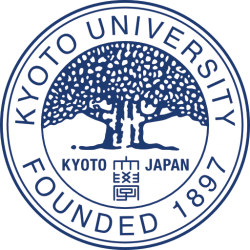Teacher: Björn-Ole KAMM
Course Code: JK50001
This practice-oriented and interactive seminar seeks to establish an understanding of theories of transculturality, interactivity, immersion, and user agency and various angles of valuable methodology for the study of games and gaming.
Game analysis, game studies, or ludography exemplify different names and approaches to the growing field of research on games and gaming. Studying the meaning of playing digital and analog games and their complexity as (trans-) cultural artifacts asks for combining new and old research tools from the humanities and social sciences — and more because gaming relates to many spheres of human activity. This practice-oriented and interactive seminar focuses on theoretical concepts and practical analytical techniques to engage transculturality in the cross-disciplinary research field of games.
Extending and revisiting the course JK33001 “Play, Transcultural,” this class engages questions of what makes a game, considering classics, such as Huizinga’s Homo Ludens, taking cues from Wittgenstein’s family resemblance, and exploring the dynamic discourse of game design, incorporation (“immersion,” see Gordon Galleja’s In-Game), and bleed. Primarily, we will deal with approaches to analyzing games as complex media artifacts that “exist” only in being played. Thus, the course offers concrete step-by-step guidelines for researching the context, formal, narrative, and visual elements, and the ergodic (“interactive”) and immersive aspects of games. In this, we will also pay attention to community-building moments and border-crossing flows, questions of representation and appropriation.
The theoretical input and practical guidelines form the basis for practical exercises in applying these methodologies to concrete cases of the student’s choosing.
The course primarily addresses JDTS and MATS first-year students of the SEG and VMC foci. The course requires students to participate actively, do regular written homework, and occasionally work in teams.
Course Information
Module: Research and Advanced Studies
CATS Requirements: BA 3rd. year or above
Link to course material on PandA.
Day/Period: Wed/3
Location: 9演/Sem. 9
Credits: 2
Course Goals
Building on key literature of game studies since Aarseth’s “Playing Research” and a Wittgensteinian approach to cultural practices, students will acquire knowledge and skills in developing a matching research design for studies sensitive to the interactive nature of games, and the role of actors and materials alike.
Students will apply key methodologies to contemporary case studies, such as qualitative visual and textual analysis of video and non-digital games (using QDA-software, such as MaxQDA), cyber-ethnography of gamers, or the analysis of the physical embodiment of fictional characters in live-action gaming. The course aims to assist students in taking the leap to a position of knowledge production and thus focuses on practical exercises and training in academic presentation skills.
Course Schedule and Evaluation
For a detailed course schedule, please visit KULASIS or PandA.
To JDTS/MATS students: This course can be taken as either a reduced (4 ECTS) or a full seminar (8 ECTS). Please indicate your ECTS requirement to the teacher.
Students will have much flexibility in gaining points through various tasks they need to fulfill during the semester, such as actively guiding the discussion, translating course material into their own understanding, or presenting a topic in class. Evaluation depends on the number of fulfilled quests. For 8 ECTS, however, the term paper dungeon needs to be cleared.


